
Bavaro: The Gem of Punta Cana
Nestled in the heart of Punta Cana, Bavaro is a captivating neighborhood that effortlessly blends the charm of Caribbean culture with the allure of pristine white-sand beaches. This tropical paradise is a haven for sun-seekers and adventure enthusiasts alike, offering an array of activities that cater to all kinds of travelers. From luxurious resorts to bustling local markets, Bavaro provides an immersive experience of the Dominican Republic's vibrant lifestyle. The azure waters of Bavaro Beach are a focal point for visitors, inviting them to indulge in water sports such as snorkeling, jet-skiing, and parasailing. For those who prefer a more relaxed pace, the beach is also perfect for sunbathing or taking a leisurely stroll along the shore. The nearby coral reefs offer some of the best snorkeling and diving opportunities in the Caribbean, showcasing a dazzling array of marine life. Beyond the beach, Bavaro boasts a lively dining and nightlife scene. From traditional Dominican cuisine to international gourmet options, the restaurants here cater to all palates. As the sun sets, the neighborhood comes alive with music and dance, with numerous bars and clubs offering a taste of the local merengue and bachata rhythms. Shoppers will find a variety of boutiques and markets selling everything from handcrafted souvenirs to high-end fashion. For those interested in exploring the natural beauty of the area, Bavaro is surrounded by lush tropical landscapes and is a gateway to several eco-parks and nature reserves. One can embark on a thrilling zip-lining adventure or take a serene horseback ride through the countryside. The neighborhood's proximity to Punta Cana International Airport makes it an easily accessible destination, ensuring that your tropical getaway is just a short flight away.
Local tips in Bavaro
- Bring sunscreen and a hat to protect yourself from the strong Caribbean sun.
- Try the local dish, 'mangu,' for a true taste of Dominican cuisine.
- Book water sports and excursions in advance to secure the best prices and availability.
- Learn a few basic Spanish phrases to enhance your interactions with locals.
- Visit local markets early in the morning for the freshest produce and unique souvenirs.
Bavaro: The Gem of Punta Cana
Nestled in the heart of Punta Cana, Bavaro is a captivating neighborhood that effortlessly blends the charm of Caribbean culture with the allure of pristine white-sand beaches. This tropical paradise is a haven for sun-seekers and adventure enthusiasts alike, offering an array of activities that cater to all kinds of travelers. From luxurious resorts to bustling local markets, Bavaro provides an immersive experience of the Dominican Republic's vibrant lifestyle. The azure waters of Bavaro Beach are a focal point for visitors, inviting them to indulge in water sports such as snorkeling, jet-skiing, and parasailing. For those who prefer a more relaxed pace, the beach is also perfect for sunbathing or taking a leisurely stroll along the shore. The nearby coral reefs offer some of the best snorkeling and diving opportunities in the Caribbean, showcasing a dazzling array of marine life. Beyond the beach, Bavaro boasts a lively dining and nightlife scene. From traditional Dominican cuisine to international gourmet options, the restaurants here cater to all palates. As the sun sets, the neighborhood comes alive with music and dance, with numerous bars and clubs offering a taste of the local merengue and bachata rhythms. Shoppers will find a variety of boutiques and markets selling everything from handcrafted souvenirs to high-end fashion. For those interested in exploring the natural beauty of the area, Bavaro is surrounded by lush tropical landscapes and is a gateway to several eco-parks and nature reserves. One can embark on a thrilling zip-lining adventure or take a serene horseback ride through the countryside. The neighborhood's proximity to Punta Cana International Airport makes it an easily accessible destination, ensuring that your tropical getaway is just a short flight away.
Iconic landmarks you can’t miss
Punta Cana Em Português
Explore the charm of Punta Cana with expert guidance from Punta Cana Em Português, your trusted tourist information center in the Dominican Republic.
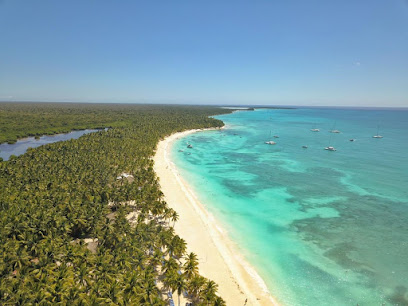
Iglesia católica Jesus Maestro
Explore the serene Iglesia católica Jesus Maestro in Punta Cana, a stunning Catholic church blending culture and spirituality amidst beautiful architecture.
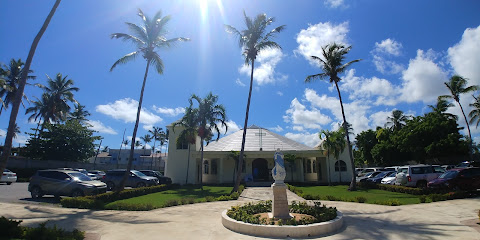
Beach at Bavaro Princess All Suits Resort, Spa and Casino
Discover the breathtaking beauty and luxurious amenities of Bavaro Princess All Suites Resort, Spa and Casino in Punta Cana, where paradise awaits every visitor.
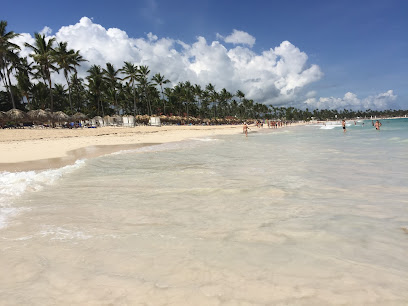
Visita Republica Dominicana
Discover the Dominican Republic's beauty and culture through expert guidance at Visita Republica Dominicana, your essential travel companion.
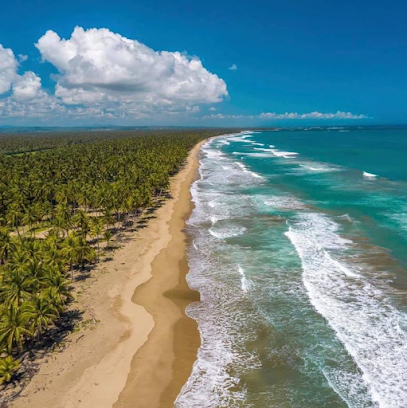
Punta Cana Sailing Cruise
Experience the beauty of the Caribbean with Punta Cana Sailing Cruise, where adventure meets relaxation in paradise.
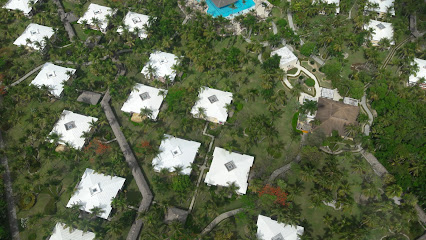
Tatos Palm Beach
Discover the breathtaking beauty of Tatos Palm Beach in Punta Cana, where sun, sand, and serenity await every traveler.
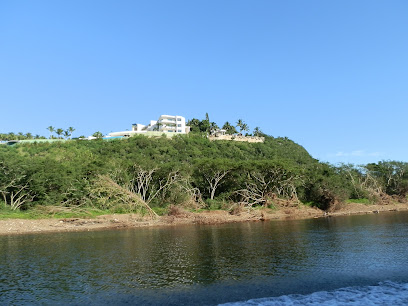
Plaza Bavaro
Discover the vibrant artistry of the Dominican Republic at Plaza Bavaro, a cultural gem in Punta Cana showcasing local paintings and creativity.
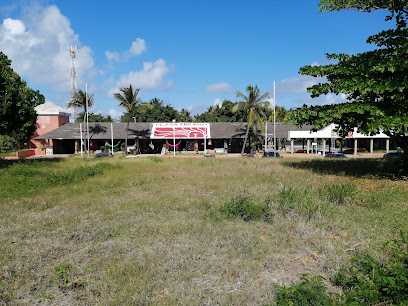
CRUCE DE FRIUSA
Experience the vibrant heart of Punta Cana at Cruce de Friusa, a cultural crossroads offering local flavors, crafts, and a gateway to beautiful beaches.
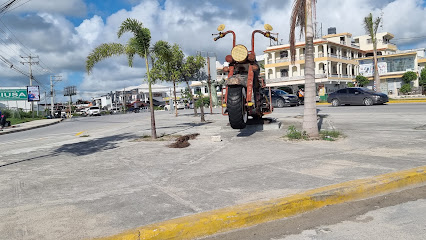
Tours in Punta Cana
Discover the ultimate travel experiences with Tours in Punta Cana, where adventure meets relaxation in a Caribbean paradise.
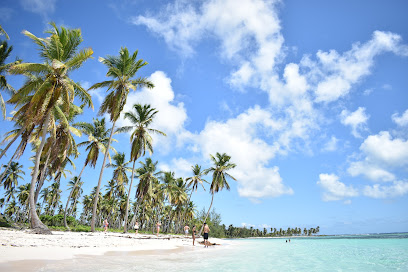
Punta Cana
Explore Punta Cana's breathtaking beaches and lush hiking trails, a paradise for adventure seekers and relaxation lovers alike.

Unmissable attractions to see
Playa Gran Bahia Principe
Experience the breathtaking beauty of Playa Gran Bahia Principe in Punta Cana, a perfect blend of relaxation, adventure, and local culture.
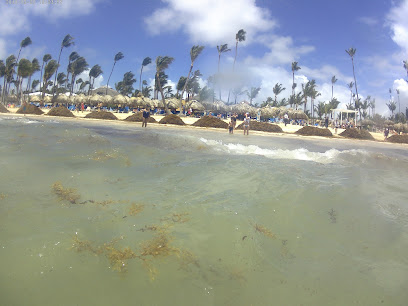
Playa Galina
Explore the pristine sands and vibrant culture of Playa Galina, a hidden paradise in Punta Cana perfect for relaxation and adventure.
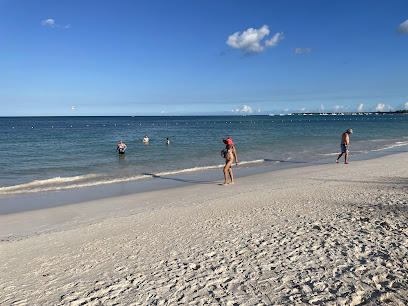
Beach Activities/rentals
Experience the best of Punta Cana with thrilling beach activities and rentals, a perfect blend of adventure and relaxation in a tropical paradise.
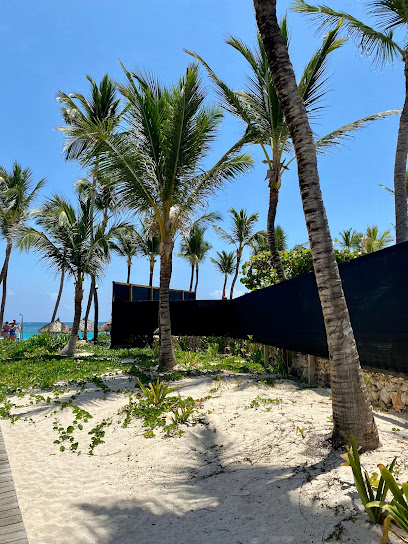
The best seat of world
Experience breathtaking views and vibrant culture at 'The Best Seat in the World' in Punta Cana, a must-visit tropical paradise for every traveler.
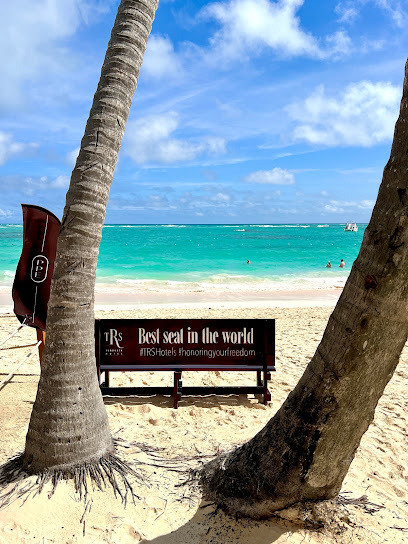
parque acuático BAHIA PRÍNCIPE fantasia
Experience the ultimate aquatic adventure at Parque Acuático Bahía Príncipe Fantasía in Punta Cana, where fun and excitement meet family-friendly attractions.
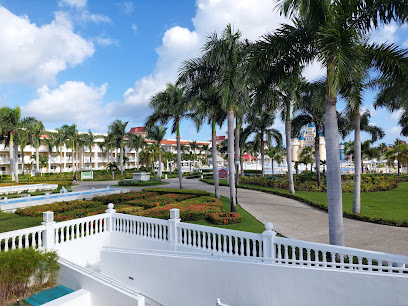
Beachfront Pool/Pool of the Dominicanos at Playa Coral (Piscina Del Mar/Piscina de los Dominicanos)
Experience the ultimate relaxation at the Beachfront Pool of the Dominicanos, where sun, sea, and serenity come together in Punta Cana.
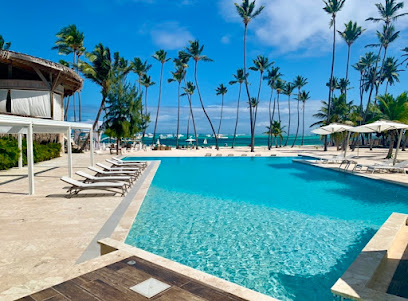
Essential places to dine
Jellyfish Restaurant
Discover the culinary gem of Punta Cana at Jellyfish Restaurant - where ocean views meet exquisite dining.
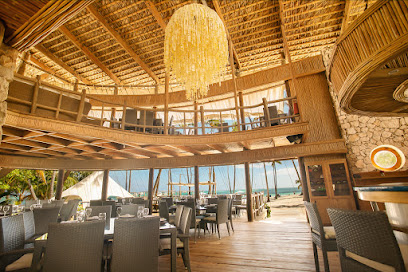
Restaurante capitán Cook
Experience authentic Caribbean flavors at Restaurante Capitán Cook in Punta Cana - where every meal is a celebration of local cuisine.
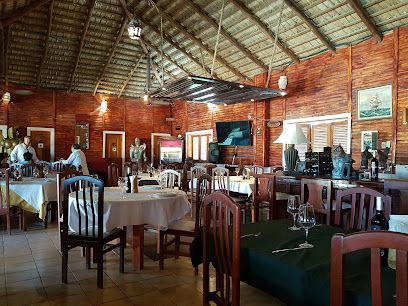
Citrus Fusion Cuisine
Experience the vibrant tastes of Punta Cana at Citrus Fusion Cuisine, where tropical flavors meet innovative culinary artistry.
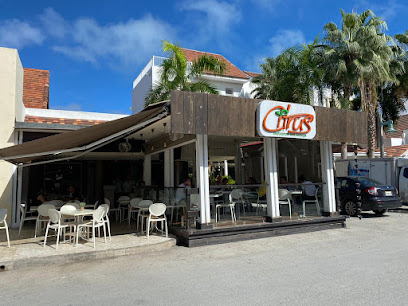
Onno's Punta Cana / Bavaro
Discover Onno's Punta Cana: where delectable dining meets vibrant nightlife in the heart of Bavaro.
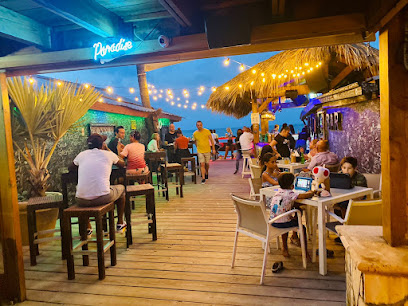
punta cana Dominican republic
Discover Punta Cana: A Culinary Paradise with Stunning Beaches and Rich Culture Awaiting Every Traveler.
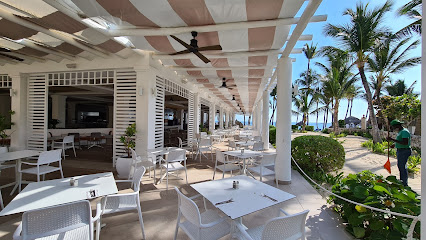
Herman 311 Bar & Restaurant
Experience the best seafood in Punta Cana at Herman 311 Bar & Restaurant - where freshness meets flavor in every bite.
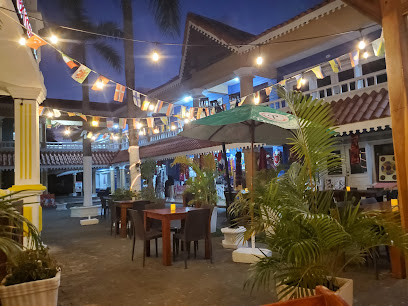
Le Gourmet Restaurant
Experience exquisite dining at Le Gourmet Restaurant in Punta Cana with locally inspired dishes and exceptional service.
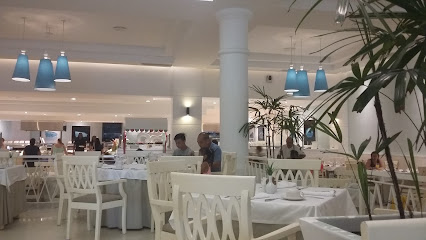
A Casa di Lorenzo
Experience authentic Italian flavors at A Casa di Lorenzo in Punta Cana – where every dish tells a story.
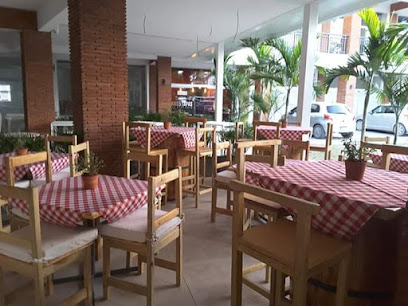
Il Tartufo
Experience the essence of Italy in Punta Cana at Il Tartufo - where authentic flavors meet tropical luxury.
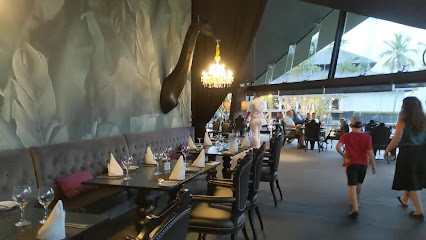
Kaboclo Wine & Steak House
Savor expertly crafted steaks and fine wines at Kaboclo Wine & Steak House in Punta Cana's vibrant Bávaro area.
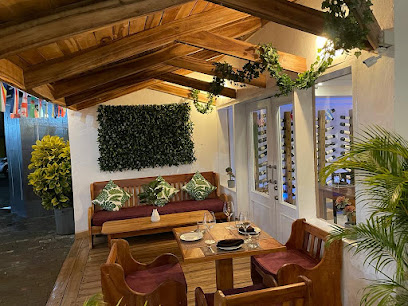
Markets, malls and hidden boutiques
Downtown Mall Punta Cana
Discover shopping, dining, and entertainment at Downtown Mall Punta Cana – your vibrant hub in the heart of the Dominican Republic.
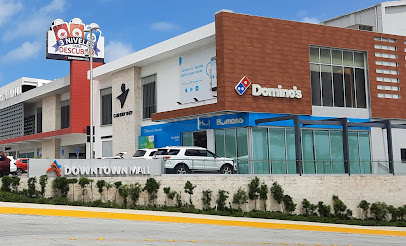
Chez Nicole Boutique
Explore the elegance of Chez Nicole Boutique in Bávaro, Punta Cana - where local fashion meets affordability in a chic shopping experience.
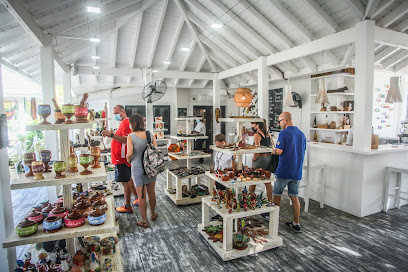
Ola Souvenirs
Discover the essence of the Dominican Republic at Ola Souvenirs, where every item tells a story of culture and craftsmanship.
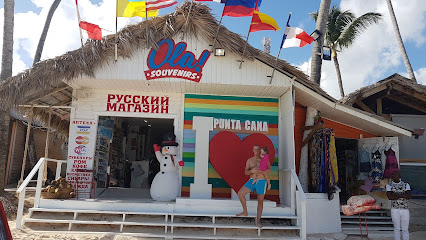
Магазин Рай - Gift Shop Sky
Explore Магазин Рай - Gift Shop Sky in Punta Cana for unique souvenirs, premium cigars, and local liquors that embody the spirit of the Dominican Republic.
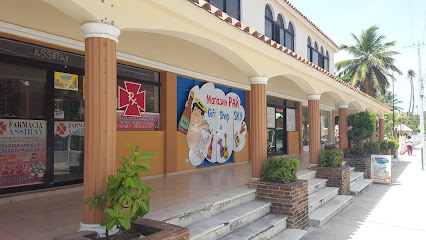
Punta Cana Treasure
Explore Punta Cana Treasure: Your destination for unique souvenirs and local crafts in Bávaro, Dominican Republic.
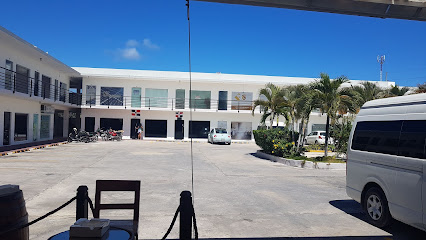
OQP Only Quality Products
Discover unique gifts and high-quality souvenirs at OQP Only Quality Products, a premier boutique in Punta Cana's Bavaro Shopping Center.
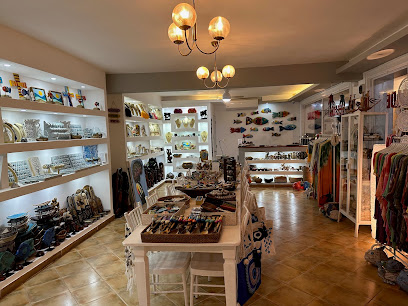
Top Style Boutique
Explore Top Style Boutique in Punta Cana for unique men's fashion that blends style with Dominican culture, perfect for every tourist's wardrobe.

Designer Gallery Punta Cana
Discover a stylish array of handbags, shoes, and accessories at Designer Gallery Punta Cana, where fashion meets quality in a tropical paradise.
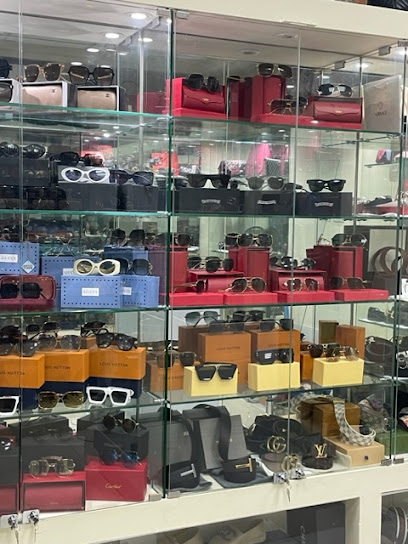
Shopping center
Explore a vibrant gift shop in Punta Cana, offering unique souvenirs and local crafts that capture the essence of the Dominican Republic.
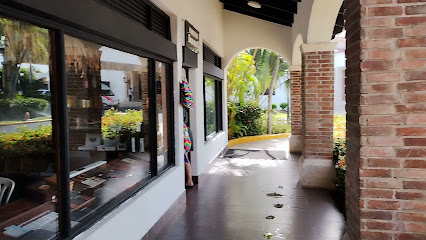
Feria Artesanal Bambú Gift Shop
Explore Feria Artesanal Bambú Gift Shop in Punta Cana for unique handcrafted souvenirs, jewelry, and local art. A treasure trove of Dominican craftsmanship awaits!
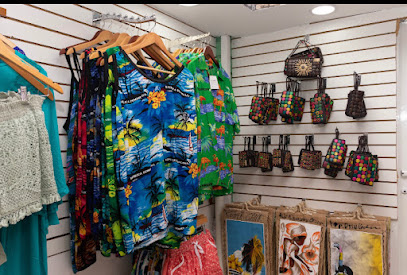
Essential bars & hidden hideouts
Drink Point Bavaro
Discover the lively nightlife of Punta Cana at Drink Point Bavaro, where vibrant music, delicious drinks, and unforgettable memories await.
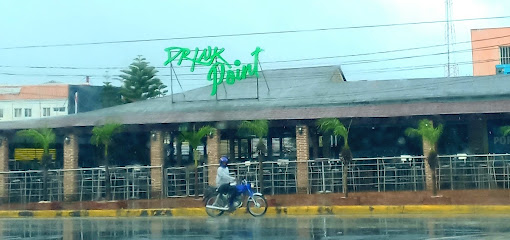
Barcelo Bavaro Palace Bar Sport
Experience the lively atmosphere of Barcelo Bavaro Palace Bar Sport in Punta Cana, where refreshing drinks and live sports create unforgettable moments.
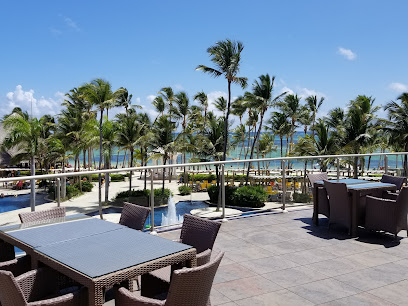
El Kan Drink House
Dance the night away at El Kan Drink House, Punta Cana's vibrant disco club offering electrifying music and a lively atmosphere.
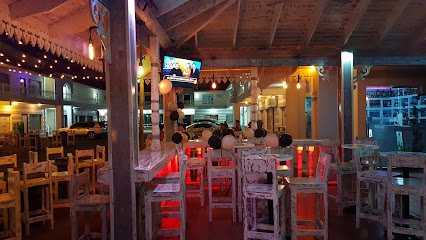
Onno's Punta Cana / Bavaro
Experience vibrant nightlife and delicious cuisine at Onno's Punta Cana, the ultimate beachfront restaurant and entertainment hub in Bávaro.
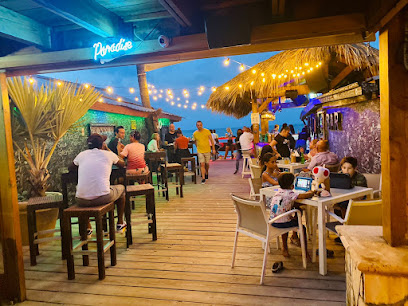
Soles Beach Club
Discover the ultimate beachside restaurant and musical club experience at Soles Beach Club in Punta Cana, where food, fun, and the ocean come together.
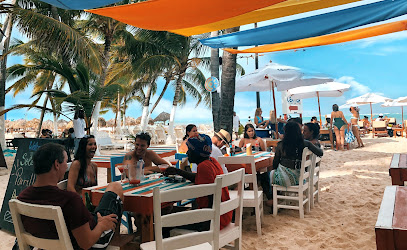
Bavaro Corner Bar
Discover Bavaro Corner Bar, a lively sports bar in Punta Cana with delicious food, refreshing drinks, and a warm, welcoming atmosphere.
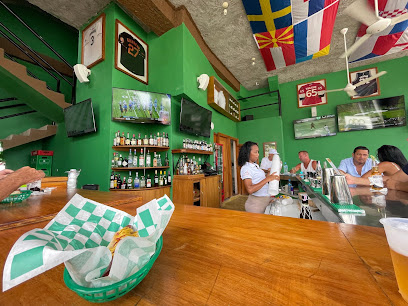
Privilege Lounge, Bahia Principe
Experience the ultimate nightlife at Privilege Lounge in Bahia Principe, where exquisite drinks meet vibrant atmosphere in Punta Cana.
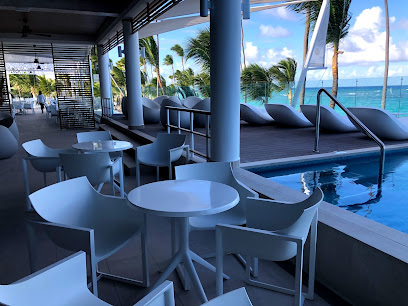
Majestic Mirage Draft sports bar
Majestic Mirage Draft Sports Bar in Punta Cana: A vibrant spot for sports, delicious bites, and unforgettable memories in paradise.
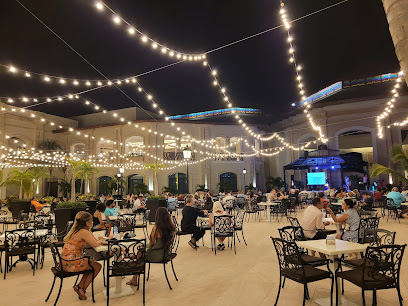
Jigger Bar (Meliá Punta Cana)
Discover the vibrant atmosphere and innovative cocktails at Jigger Bar in Meliá Punta Cana, where every drink is a unique experience.
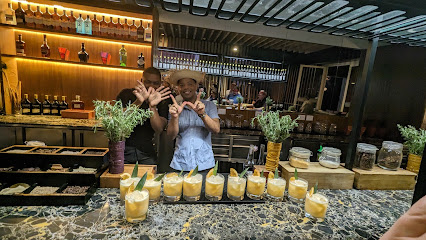
The Drink House
Experience the vibrant nightlife of Punta Cana at The Drink House, where refreshing cocktails and a lively atmosphere await you.
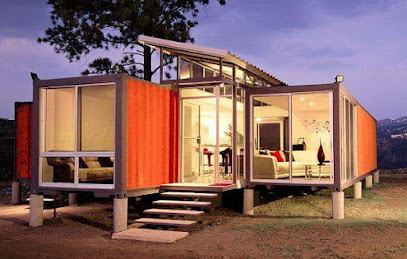
Local Phrases
-
- HelloHola
[oh-lah] - GoodbyeAdiós
[ah-dee-ohs] - YesSí
[see] - NoNo
[noh] - Please/You're welcomePor favor/De nada
[por fah-vor/de nah-dah] - Thank youGracias
[grah-see-as] - Excuse me/SorryPerdón/Lo siento
[pair-dohn/loh see-en-toh] - How are you?¿Cómo estás?
[koh-moh ehs-tahs] - Fine. And you?Bien. ¿Y tú?
[byen. ee too] - Do you speak English?¿Hablas inglés?
[ah-blahs een-glehs] - I don't understandNo entiendo
[noh ehn-tyen-doh]
- HelloHola
-
- I'd like to see the menu, pleaseMe gustaría ver el menú, por favor
[meh goo-stah-ree-ah behr ehl meh-noo, poor fah-vor] - I don't eat meatNo como carne
[noh koh-moh kahr-neh] - Cheers!¡Salud!
[sah-lood] - I would like to pay, pleaseMe gustaría pagar, por favor
[meh goo-stah-ree-ah pah-gahr, poor fah-vor]
- I'd like to see the menu, pleaseMe gustaría ver el menú, por favor
-
- Help!¡Ayuda!
[ah-yoo-dah] - Go away!¡Vete!
[veh-teh] - Call the Police!¡Llama a la policía!
[yah-mah ah lah poh-lee-see-ah] - Call a doctor!¡Llama a un médico!
[yah-mah ah oon meh-dee-koh] - I'm lostEstoy perdido
[ehs-toy pair-dee-doh] - I'm illEstoy enfermo
[ehs-toy ehn-fehr-moh]
- Help!¡Ayuda!
-
- I'd like to buy...Me gustaría comprar...
[meh goo-stah-ree-ah kohm-prahr] - I'm just lookingSolo estoy mirando
[soh-loh ehs-toy meer-ahn-doh] - How much is it?¿Cuánto cuesta?
[kwan-toh kwehs-tah] - That's too expensiveEs demasiado caro
[ehs deh-mah-syah-doh kah-roh] - Can you lower the price?¿Puede bajar el precio?
[pweh-deh bah-har ehl pree-syoh]
- I'd like to buy...Me gustaría comprar...
-
- What time is it?¿Qué hora es?
[keh oh-rah ehs] - It's one o'clockEs la una
[ehs lah oo-nah] - Half past (10)Media (10)
[meh-dee-ah (deez)] - MorningMañana
[mah-nyah-nah] - AfternoonTarde
[tahr-deh] - EveningNoche
[noh-cheh] - YesterdayAyer
[ah-yehr] - TodayHoy
[oy] - TomorrowMañana
[mah-nyah-nah] - 1Uno
[oo-noh] - 2Dos
[dohs] - 3Tres
[trehs] - 4Cuatro
[kwah-troh] - 5Cinco
[seen-koh] - 6Seis
[says] - 7Siete
[syeh-teh] - 8Ocho
[oh-choh] - 9Nueve
[nweh-veh] - 10Diez
[dyehs]
- What time is it?¿Qué hora es?
-
- Where's a/the...?¿Dónde está...?
[dohn-deh ehs-tah] - What's the address?¿Cuál es la dirección?
[kwal ehs lah dee-rehk-syon] - Can you show me (on the map)?¿Puedes mostrarme (en el mapa)?
[pweh-dehs mohs-trar-meh (ehn ehl mah-pah)] - When's the next (bus)?¿Cuándo es el próximo (autobús)?
[kwan-doh ehs ehl proh-ksee-moh (ow-toh-boos)] - A ticket (to ....)Un boleto (a ....)
[oon boh-leh-toh (ah)]
- Where's a/the...?¿Dónde está...?
History of Bavaro
-
Bavaro, like much of the Dominican Republic, has indigenous Taino roots. The Taino people inhabited the region before European contact, engaging in agriculture, fishing, and trade. Their influence can still be seen in local customs and place names, reflecting a deep connection to the land and sea.
-
During the Spanish colonization in the 16th century, the Dominican Republic became a key location for sugar production. Bavaro was part of this agricultural expansion, with sugar plantations established in the area. The legacy of sugar cultivation has influenced the economic and social landscape of Bavaro and the surrounding Punta Cana region.
-
The transformation of Bavaro into a tourist destination began in the 1970s, with the development of hotels and resorts along its stunning beaches. This marked a shift from a primarily agricultural community to a vibrant hub for international tourism, reshaping the local economy and culture.
-
In recent years, Bavaro has witnessed a growing emphasis on sustainable tourism and environmental preservation. Efforts to protect the region's natural resources, including coral reefs and mangroves, reflect a broader commitment to maintaining Bavaro's beauty and ecological integrity amid rapid development.
-
Today, Bavaro exemplifies a fusion of cultures, with influences from Taino heritage, Spanish colonial history, and modern global tourism. The local community celebrates its diverse heritage through festivals, cuisine, and music, creating a unique cultural tapestry that attracts visitors from around the world.
Bavaro Essentials
-
Bavaro is easily accessible from other neighborhoods in Punta Cana. The nearest airport is Punta Cana International Airport (PUJ), located about 30 minutes away by car. From the airport, travelers can take a taxi or pre-arranged shuttle service directly to Bavaro resorts. If you're coming from other areas in Punta Cana, local taxis and ride-sharing services like Uber are widely available, although prices may vary. Public transportation options, such as the local guaguas (minibuses), are also available but may be less comfortable for tourists.
-
Bavaro is a relatively flat and compact area, making it easy to explore on foot or by bicycle. Many resorts offer bike rentals. Local taxis are readily available for longer distances, and negotiating fares in advance is recommended. There are no trains in the area; however, public transport options like guaguas operate along the main routes. These minibuses are an affordable way to travel but can be crowded. If you prefer more convenience, renting a car is an option, but be cautious of local driving habits.
-
Bavaro is generally safe for tourists, but it is essential to remain vigilant. Petty crimes, such as pickpocketing and bag snatching, can occur in crowded areas. Avoid displaying valuable items and be cautious in secluded places and at night. Areas closer to the beach are typically safer, while the outskirts may have higher crime rates. It is advisable not to wander too far into less populated neighborhoods alone after dark.
-
In case of emergency, dial 911 for police, fire, or medical assistance. The nearest hospital is Hospiten in Bavaro, which is well-equipped to handle emergencies. It is advisable to have travel insurance that covers medical emergencies. For less urgent health issues, local pharmacies can provide over-the-counter medications. Keep the contact information of your country's embassy or consulate handy in case of any serious issues.
-
Fashion: Do wear light, breathable clothing suitable for tropical weather. Swimwear is acceptable at the beach but should be covered when leaving the beach area. Religion: Do respect local customs, especially when visiting religious sites. Public Transport: Do be polite and give up your seat to the elderly or pregnant women. Don't expect air conditioning in public transport; it's often open and breezy. Greetings: Do greet locals with a friendly smile or a casual 'Hola.' Eating & Drinking: Do try local foods and beverages, but be cautious with street food. Don’t drink tap water; bottled water is recommended.
-
To experience Bavaro like a local, visit the nearby markets for fresh produce and local crafts. Engage with vendors, who are usually friendly and willing to share recommendations. Explore lesser-known beaches, such as Playa Macao, for a more authentic experience away from the tourist crowds. Join in local festivities if your visit coincides with them, and try to learn a few basic Spanish phrases, as it can enhance your interactions with locals.
Nearby Cities to Bavaro
-
Things To Do in Bayahibe
-
Things To Do in La Romana
-
Things To Do in Samana
-
Things To Do in Rincon
-
Things To Do in Aguadilla
-
Things To Do in Isabela
-
Things To Do in Cabo Rojo
-
Things To Do in Santo Domingo
-
Things To Do in Guánica
-
Things To Do in Arecibo
-
Things To Do in Manatí
-
Things To Do in Ponce
-
Things To Do in Dorado
-
Things To Do in Jarabacoa
-
Things To Do in Bayamón












